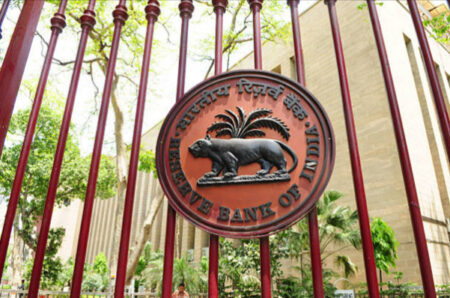Public sector banks have showcased an impressive transformation, surpassing previous losses with a remarkable rebound. In a span of five years, they transitioned from a net loss of Rs 85,390 crore in 2017-18 to a substantial profit of Rs 1,04,649 crore in 2022-23. This noteworthy achievement reflects their commendable financial performance and strategic initiatives according to the Finance minister.
Financial Performance Review
Finance Minister Nirmala Sitharaman is scheduled to meet with the chiefs of public sector banks (PSBs) to review their financial performance. This meeting marks the first review since the announcement of the 2022-23 financial results, which showcased a significant milestone for PSBs. During that fiscal year, PSBs collectively recorded a record profit of Rs 1.04 lakh crore, with the State Bank of India (SBI) contributing nearly half of the total earnings. This achievement reflects a remarkable turnaround from the total net loss of Rs 85,390 crore reported in 2017-18.
In the review, the finance minister will closely examine key financial indicators to assess the health of PSBs. Credit growth, asset quality, capital raising, and the business growth plan for the upcoming financial year will be under scrutiny. Additionally, the recovery status of non-performing assets (NPAs) amounting to Rs 100 crore will be discussed.
It is worth noting that the latest Financial Stability Report (FSR) indicates a positive trend, with the gross non-performing assets ratio reaching a ten-year low of 3.9 percent as of March 2024. The central bank expects further improvement to 3.6 percent in the baseline scenario. These favorable indicators provide a solid foundation for the finance minister to encourage PSBs to sustain their financial performance and build on their successes.
Progress on Government Schemes
In addition to the financial performance review, the meeting will focus on the progress made by banks in implementing various government schemes. These schemes, such as the Kisan Credit Card (KCC), Stand-Up India, Pradhan Mantri Mudra Yojana (PMMY), and the emergency credit line guarantee scheme (ECLGS), aim to support businesses affected by the Covid-19 pandemic.
Finance Minister Sitharaman will seek updates from the heads of the banks regarding the achievement of targets set for these government initiatives. The performance during the first quarter of the current financial year will also be appraised. The finance minister recognises the importance of these schemes in facilitating economic recovery and ensuring adequate credit flow to productive sectors. Therefore, she is likely to urge bankers to prioritise the areas highlighted in the Budget and continue their efforts in supporting businesses in need.
Strengthening Corporate Governance
During a recent address, Finance Minister Sitharaman emphasized the critical role of strong corporate governance in the banking sector. She highlighted the importance of banks following best practices and adhering to regulatory norms to ensure transparency, accountability, and integrity.
Corporate governance refers to the set of principles and practices that govern how a company operates, with a focus on decision-making, risk management, and the protection of stakeholders’ interests. By upholding these principles, banks can build trust among investors, depositors, and the public, which ultimately strengthens the stability of the financial system.
In her address, the finance minister stressed the significance of prudent liquidity management, robust asset-liability management, and effective risk management. These practices help banks maintain a healthy balance between assets and liabilities, ensuring their ability to meet financial obligations and withstand economic shocks.
By adhering to corporate governance principles, banks can enhance their operational efficiency, reduce the risk of misconduct or fraud, and improve their overall performance. Moreover, strong corporate governance practices contribute to a level playing field and a fair financial system, fostering investor confidence and attracting capital inflows.
The finance minister’s call to “build on laurels” reflects the need for banks to continuously strive for improvement and not become complacent with their current successes. Upholding the highest standards of corporate governance is not just a regulatory requirement; it is an essential aspect of responsible and sustainable banking.
Outlook and Conclusion
The upcoming review meeting between the finance minister and the chiefs of public sector banks holds great significance for the banking sector and the broader Indian economy. The remarkable financial performance of PSBs in the last fiscal year highlights their resilience and ability to adapt to challenges successfully. As the country recovers from the Covid-19 pandemic, the focus on government schemes aims to accelerate economic revival and provide crucial support to businesses affected by the crisis.
Looking ahead, sustained emphasis on financial performance, effective implementation of government schemes, and robust corporate governance will be instrumental in shaping the future of PSBs. By continuing to prioritize credit flow to productive sectors, maintaining asset quality, and exploring avenues for capital raising, PSBs can contribute significantly to India’s economic growth and development.
Furthermore, as the banking sector plays a pivotal role in the financial ecosystem, ensuring strong corporate governance practices remains a key priority. Upholding transparency, accountability, and risk management principles will not only fortify individual banks but also strengthen the overall stability and resilience of the banking system.
In conclusion, the review meeting serves as a platform for collaboration between the government and public sector banks, fostering a partnership that can drive sustainable economic development. By staying committed to their financial goals, supporting government schemes, and adhering to best corporate governance practices, PSBs can continue to lead the way towards a robust and prosperous banking sector in India.












